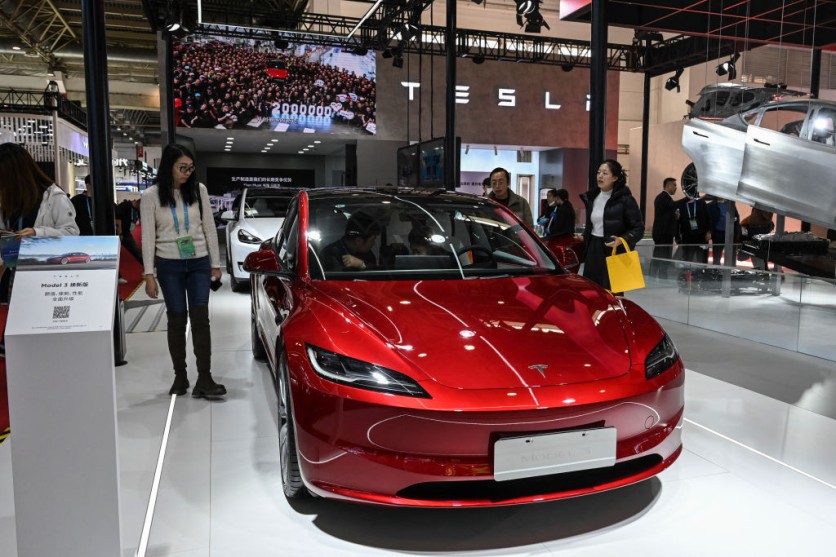Tesla has officially confirmed a reduction in the federal tax credit for two Model 3 trims, slashing it by half, starting next year. The $7,500 tax credit, available to Model 3 buyers based on their income eligibility, has been a significant incentive since the reform of the electric vehicle (EV) incentive program in 2023.
However, eligibility criteria have evolved, requiring electric vehicles to meet conditions related to the price and source of components. The criteria for components, particularly battery materials, are becoming stricter each year, emphasizing the need for more locally sourced batteries and materials in North America.

As a result of these changes, Tesla has announced a reduction in the tax credit for specific Model 3 models. In an overnight update to its online design studio, the automaker revealed that the tax credit for Model 3 Rear-Wheel-Drive and Model 3 Long Range would be reduced.
"Customers who take delivery of a qualified new Tesla and meet all federal requirements are eligible for a tax credit up to $7,500. The tax credit will be reduced to $3,750 for Model 3 Rear-Wheel Drive and Model 3 Long Range on January 1, 2024. Take delivery by December 31 for a full tax credit. Only for eligible cash or loan purchases," the EV manufacturer stated, as quoted by Electrek.
While Tesla does not elaborate on the specific reasons for the credit reduction, it is believed to be related to the origin of certain battery components. The tax credit has become a "point-of-sale" incentive, enabling direct application at the time of car purchase rather than return.
Read also: Tesla's Cybertruck Launch: Some Reservation Holders Disappointed, But Many Remain Eager to Purchase
Tesla's China-Made EV Sales Drop
In related news, the China Passenger Car Association reported 82,432 Tesla electric vehicle sales in November, down 17.8% from the same month the previous year. This is the biggest loss since December 2022, when sales plunged 21%. However, China-made Model 3 and Model Y deliveries rose 14.3% from October, as reported by Reuters.
While competition in the Chinese electric car industry remains fierce, BYD delivered a record 301,378 passenger vehicles in November, up 0.09% from October and 31% from the previous year.
Tesla, Other EV Makers Agree to Use Climate Trace
Meanwhile, Tesla, GM, and other manufacturers have agreed to measure greenhouse gas emissions using Climate TRACE.
The database, which former US Vice President Al Gore presented at the COP28 climate conference, aims to closely monitor emissions in supply chains. Climate TRACE covers over 350 million sources of greenhouse gas pollution globally, offering companies an independent and comprehensive tool to assess and build low-emission supply chains.
According to Teslarati, the Climate TRACE database, launched in 2020, offers an alternative to self-reported supplier information. Tesla, GM, Polestar, Boeing, and Muir AI, among others, have joined to utilize the database to assess emissions from steel and aluminum suppliers and find cleaner manufacturing sources without significant cost increases.

ⓒ 2026 TECHTIMES.com All rights reserved. Do not reproduce without permission.




